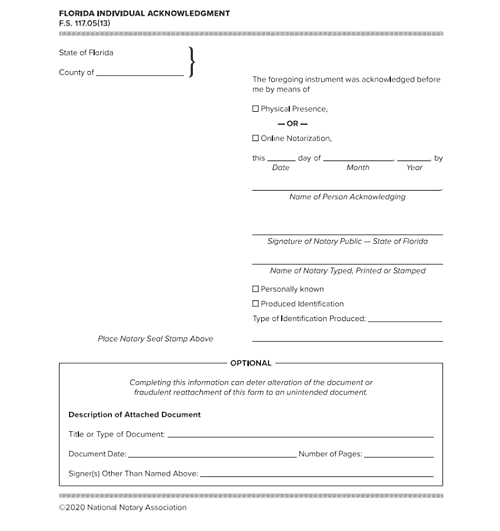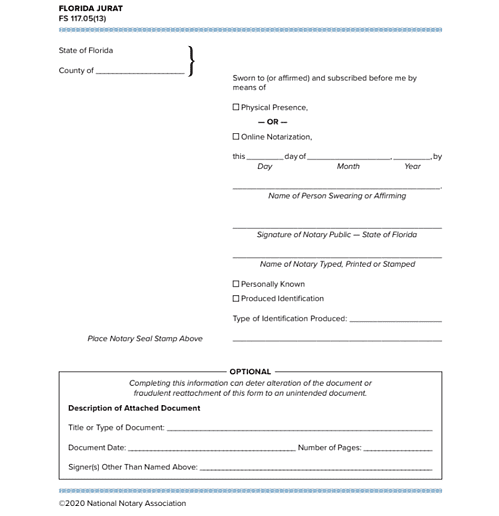Understanding Acknowledgments, Jurats, and Their Importance
Notarial certificates play a crucial role in the authentication of legal documents, ensuring their validity and compliance with regulations. Two common types of notarial certificates are acknowledgments and jurats, each serving distinct purposes in the notarization process.
Acknowledgment: An acknowledgment is a declaration by a signer that they voluntarily signed a document. The notary verifies the signer's identity and confirms their acknowledgment of signing the document without coercion.

Jurat: A jurat involves the signer making a sworn statement or oath before the notary. The signer affirms the truthfulness of the contents of the document, and the notary administers the oath, typically by asking the signer to swear or affirm the statement's accuracy.

Difference Between Certificates: The primary difference between acknowledgments and jurats lies in the type of declaration made by the signer. Acknowledgments confirm the signer's voluntary act of signing, while jurats involve a sworn statement or oath regarding the document's contents.
Importance of Notarial Certificates: Notarial certificates are essential for validating the notarization process. They provide a written record of the notary's actions, including the type of notarization performed, the date, the signer's identity verification, and the notary's seal or stamp. Without a notarial certificate, the notarization lacks official documentation, potentially invalidating the document's legal standing.

Assisting Signer's Decision: To assist in the signer making an informed decision on what type of notarization to select, the notary must explain the types. If the signer is unable to choose, the notary should advise them to contact the receiving party for guidance. Additionally, the notary can inform the signer that they must choose and that one is not better than the other, but it is required in order to fulfill the notarization.
Consequences of Notary Choosing Notarization Type: If the notary chooses the notarization type when it's not evident, there could be significant consequences. It may lead to legal challenges, as the chosen type may not accurately reflect the signer's intentions or the requirements of the receiving party. This could result in the document being rejected or contested, potentially causing delays or complications in legal proceedings.
In conclusion, understanding the distinctions between acknowledgments and jurats, as well as the importance of notarial certificates, is essential for ensuring the validity and legality of notarized documents. By assisting signers in selecting the appropriate notarization type and diligently documenting the process, notaries uphold the integrity of the notarization process and contribute to the reliability of legal documents.

